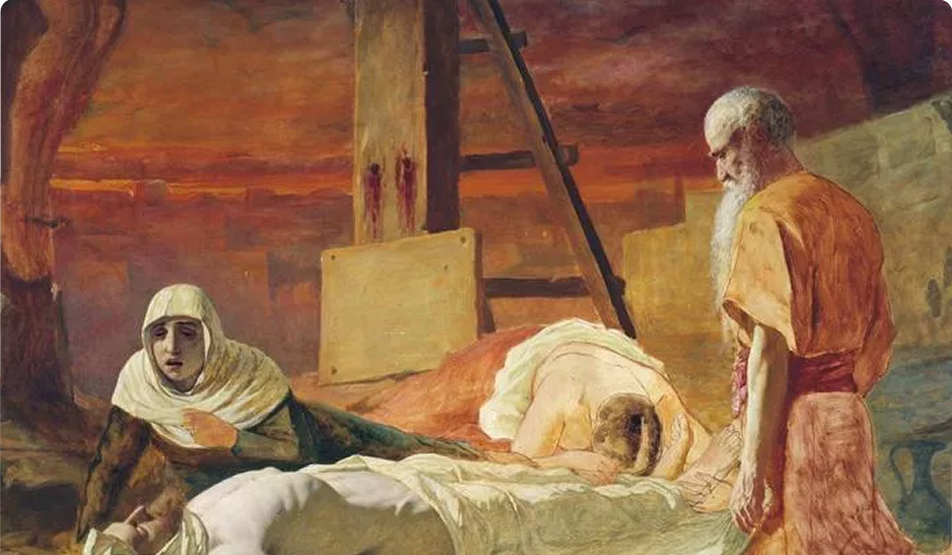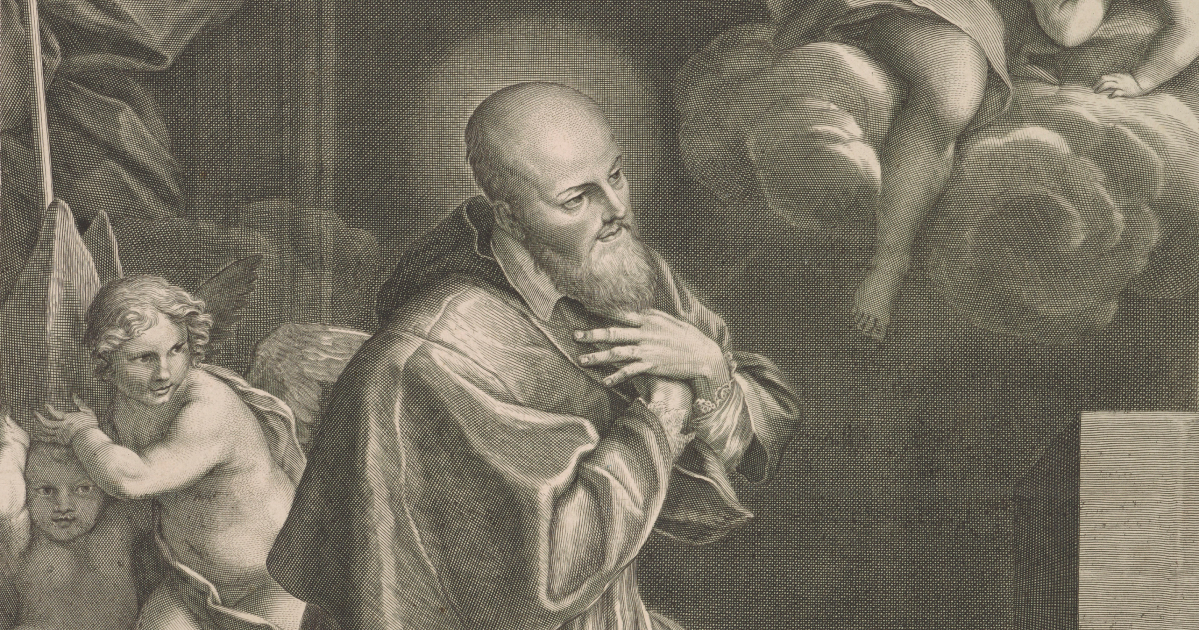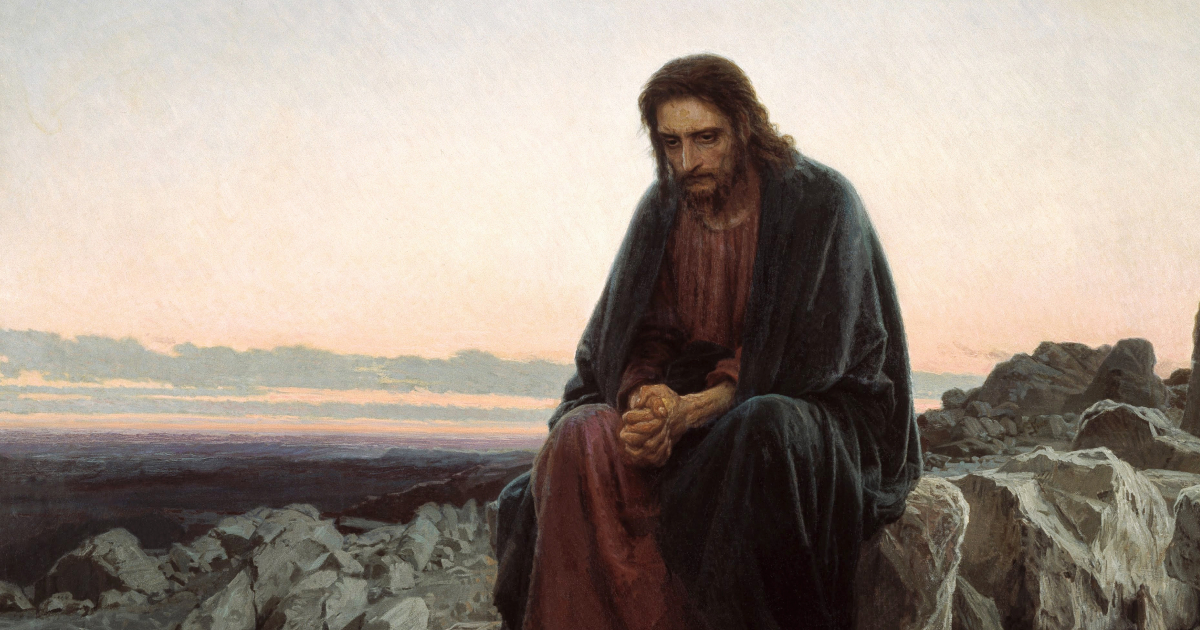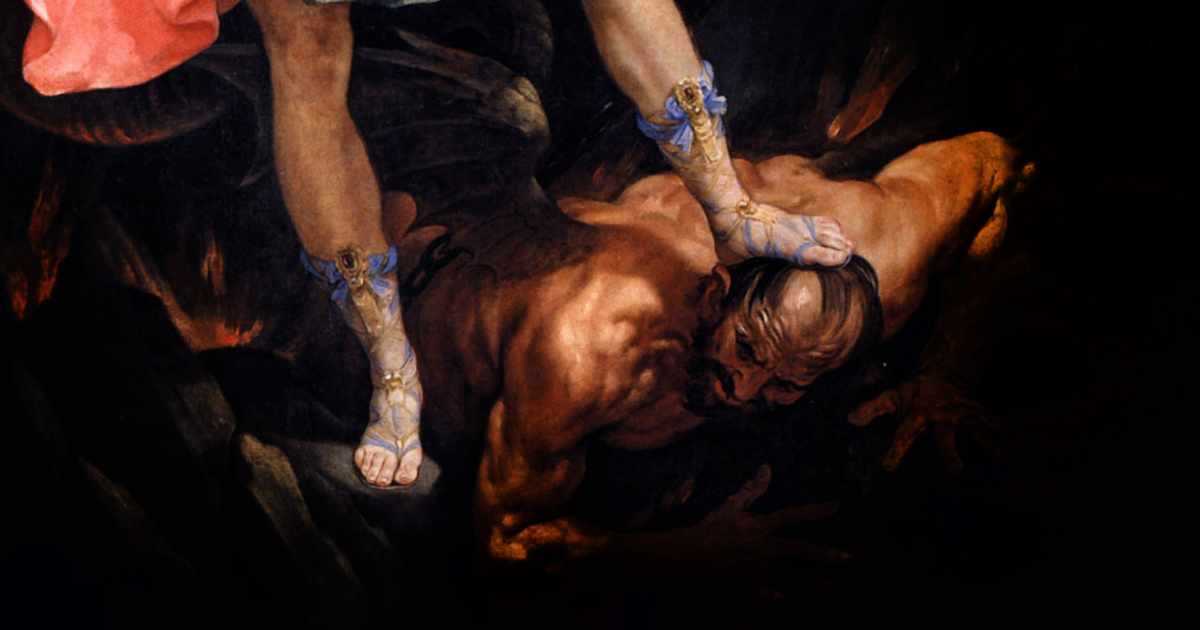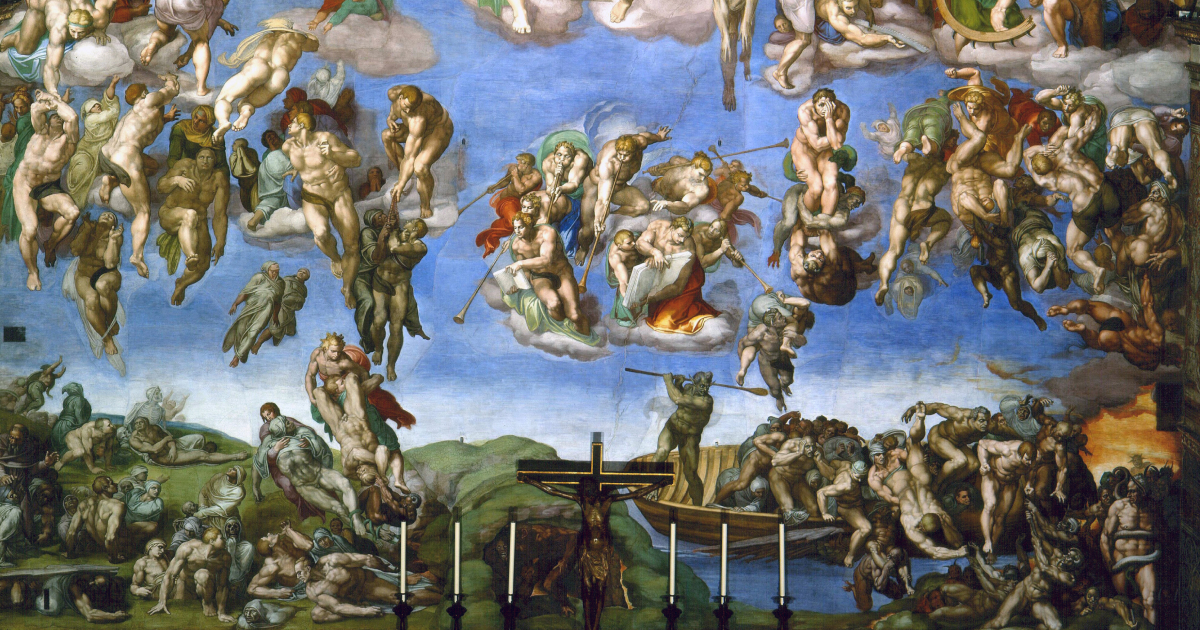Featured in the oldest of the Roman Martyrologies, the Martyrologium Hieronymianum, St Joseph of Arimathea is a well-established saint in Catholic tradition.
A thoroughly biblical figure, the first reference to him is found in the Old Testament. Isaiah 53:9, referring to the death of Jesus, tells us: “He was assigned a grave with the wicked, and with the rich in his death, though he had done no violence, nor was any deceit in his mouth” (Isaiah 53:9). St Joseph of Arimathea is often believed to be the “rich” mentioned in this verse.
He is also one of a handful of New Testament characters mentioned in all four Gospels. He is presented as a rich and secret disciple of Our Lord, but also as “a good man” and “an honourable counsellor” who “waited for the kingdom of God” (Luke 23:50–51).
After the death of Jesus, he “went unto Pilate, and begged the body of Jesus”, then “wrapped it in linen, and laid it in a sepulchre that was hewn in stone, wherein never man before was laid” (Luke 23:52–53). In other words, St Joseph of Arimathea is the wealthy individual credited with giving Jesus a burial above His social and financial standing.
He also appears in the medieval myth popularised by William Blake in his Prologue to Milton, later turned into the hymn Jerusalem, which imagines that Jesus visited England (“And was the holy Lamb of God, on England’s pleasant pastures seen!”). According to English and Cornish tradition, he was a tin merchant who accompanied the child Jesus on a voyage to England.
However, his modern sphere of influence for most Catholics lies little beyond the annual reminder of his generous role in providing a decent burial for Our Lord at the Fourteenth Station of the Cross. In truth, as a saint, his veneration is limited. He is the patron saint of undertakers, funeral directors, and coffin makers — a logical but perhaps underwhelming patronage. Compare that to another saint prophesied in the Old Testament and mentioned in all four Gospels: St John the Baptist. His annual feast is celebrated in Florence with a Pontifical High Mass, a historical procession, fireworks, and an organised match between thugs from different quarters of the old city under the guise of a medieval game of football (Calcio storico fiorentino). The fact is, we could do better in our veneration of the noble grave-giver.
A group of Catholics is now setting about changing that and putting the generous saint at the forefront of an important mission. Drawing on the inspiration of the courageous St Joseph of Arimathea, who used his wealth for Jesus, Arimathea Investing encourages Catholics to “put your money where your faith is.”
Ably led by Daniel Catone, former CEO at Golden State Investment and editorial contributor at Catholic Answers, the company allows Catholics to make investments in line with Catholic social teaching, ensuring their faith is not excluded from their financial decisions.
With the mission to “take back Wall Street for Christ”, Arimathea Investing enables Catholics to screen their portfolios to ensure they are in line with their faith. The warning is clear: unsuspecting Catholics’ investments could be funding abortion, pornography, and nuclear weapons. Arimathea explains that “even if a company you invest in doesn’t publicly support these causes, they might do so privately.”
But Arimathea Investing is not simply a screening process to warn Catholics of potential pitfalls in their financial plans. Drawing on the 2022 Vatican document Mensuram Bonam, which offers Catholics advice on how to invest ethically, Arimathea encourages Catholics to partner with them to ensure their “investments align with Catholic social teaching and uphold the sanctity of life and the common good.”
It is surprising that it has taken almost two thousand years since St Joseph’s courageous witness for Catholics to begin expressions of popular piety in his favour. But perhaps that is fitting. In his quiet, unassuming way, he appears at the opportune time to save a financially fraught society from moral decadence and bring it to dignity, just as he appeared at the opportune time to collect the body of Our Lord from Golgotha and give Him a dignified burial.





